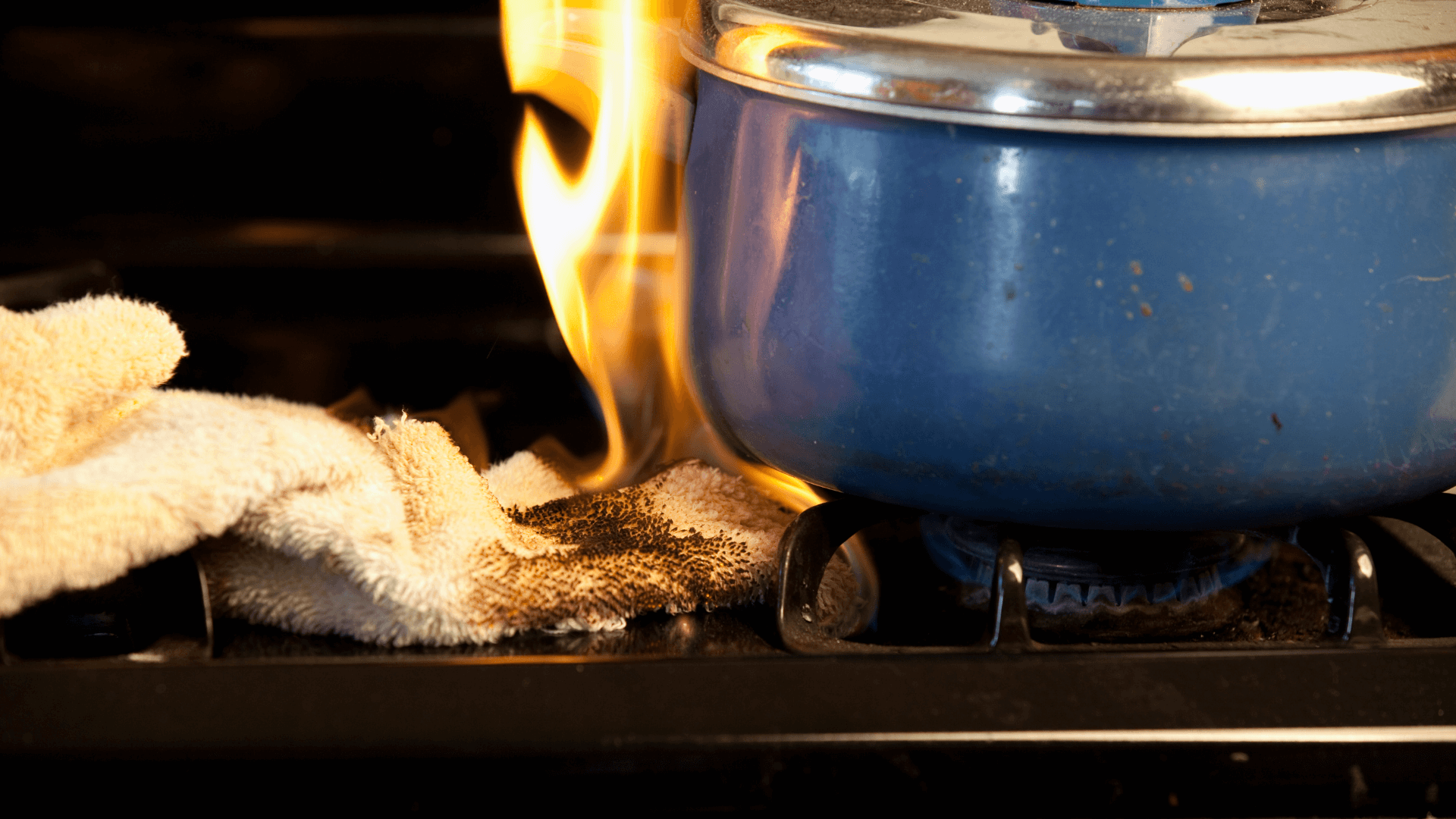House fires can be devastating, causing immense damage to property, and in worst-case scenarios, claiming lives. While we can’t always prevent accidents, understanding the most common causes of house fires is the first step toward safeguarding our homes. This blog will lay out the most common ways house fires start and share safety tips to protect yourself from these types of disasters.
Most Common Causes of House Fires
Cooking
During 2017-2021, cooking was the leading cause of reported house fires and home fire injuries. * It’s important to stay vigilant while cooking in the kitchen. Kitchen-related incidents like unattended stoves and grease fires are common causes of house fires in the kitchen.
A CPI Security customer accidentally left a pot on the stove unattended. Her CPI Security Smart Smoke Detector picked up the danger and CPI Security’s Central Station alerted firefighters. Watch the video below to see firefighters responding to her home.
Heating
Local fire departments responded to an estimated 44,000 fires involving heating equipment per year during 2016-2020. ** Heating appliances, including space heaters and furnaces, can be hazardous if not properly maintained. Regularly servicing your heating systems, keeping flammable items away, and installing carbon monoxide detectors are essential precautions to take.
Electrical
Electrical malfunctions are another common cause of house fires. Faulty wiring, overloaded circuits, and damaged electrical appliances can spark fires, especially in older homes. Regular inspections by certified electricians can significantly reduce this risk.
Mandy is a CPI Security customer. She was out running errands when an electrical issue sparked a fire in her home. See how CPI Security’s Real Time ResponseSM helped save her pets before it was too late.
Smoking
Smoking indoors significantly increases the risk of house fires. The combination of open flame and combustible materials can lead to disaster. Encourage smokers to do so outdoors and provide safe disposal options for cigarette butts. Smoking materials, including cigarettes, pipes, and cigars started an estimated 16,500 home fires in the U.S. in 2016.***
Candles
Though beautiful, candles can pose a serious fire hazard if left unattended. From 2015-2019, U.S. fire departments responded to an estimated 7,400 house fires per year that were started by candles. ****
Fire Safety Tips
Cooking Safety
To reduce the chances of a cooking fire, consider these cooking fire safety tips:
- If you are sleepy or have consumed alcohol, don’t use the stove or stovetop.
- Stay in the kitchen while you are frying, boiling, grilling, or broiling food. If you leave the kitchen, even for a short period of time, turn off the stove.
- Keep anything that can catch fire, over mitts, wooden utensils, food packaging, towels, etc. away from the stovetop.
Heating Safety
To reduce the chances of a fire caused by heating sources, consider these heating safety tips:
- Keep anything that can burn at least three feet away from heating equipment.
- Never use your oven to heat your home.
- Have heating equipment and chimneys cleaned and inspected every year by a qualified professional.
- Remember to turn portable heaters off when you leave or go to bed.
Electrical Safety Tips
To reduce the chances of a fire caused by electrical malfunctions, consider these heating safety tips:
- Have all electrical work done by a qualified electrician.
- When you are buying or remodeling a home, have it inspected by a qualified private inspector.
- Test AFCIs and GFCIs once a month, according to the manufacturer’s recommendations.
- Make sure electrical cords are not running across doorways or under carpets.
- Use a light bulb with the right number of watts.
Smoking Safety Tips
To reduce the chances of a fire starting from smoking, consider these smoking safety tips:
- If you smoke, use only fire-safe cigarettes.
- If you smoke, smoke outside.
- Do not discard cigarettes in vegetation such as mulch, potted plants, or landscaping.
- Before you throw away butts and ashes, make sure they are completely out by dousing them in water or sand.
Candle Safety
To reduce the chances of a fire starting from burning candles, consider these candle safety tips:
- Blow out all candles when you leave the room or go to bed.
- Keep candles at least 1 foot away from anything that can burn.
- Use candle holders that are sturdy and won’t tip over easily.
- Put candles on a sturdy, uncluttered surface.
Even with proper precautions, house fires can happen. That’s why it’s important to have working smoke detectors and carbon monoxide detectors. How many should you have? Visit our blog for all the details.
Consider installing a CPI Security Smart Smoke Detector that is backed by CPI’s Central Station monitoring center, so if you are unable to respond to the fire, someone from CPI will call the authorities for you.
Sources:
*National Fire Protection Association, “Cooking”
**National Fire Protection Association, “Heating”
***National Fire Protection Association, “Smoking”
****National Fire Protection Association, “Candles”




